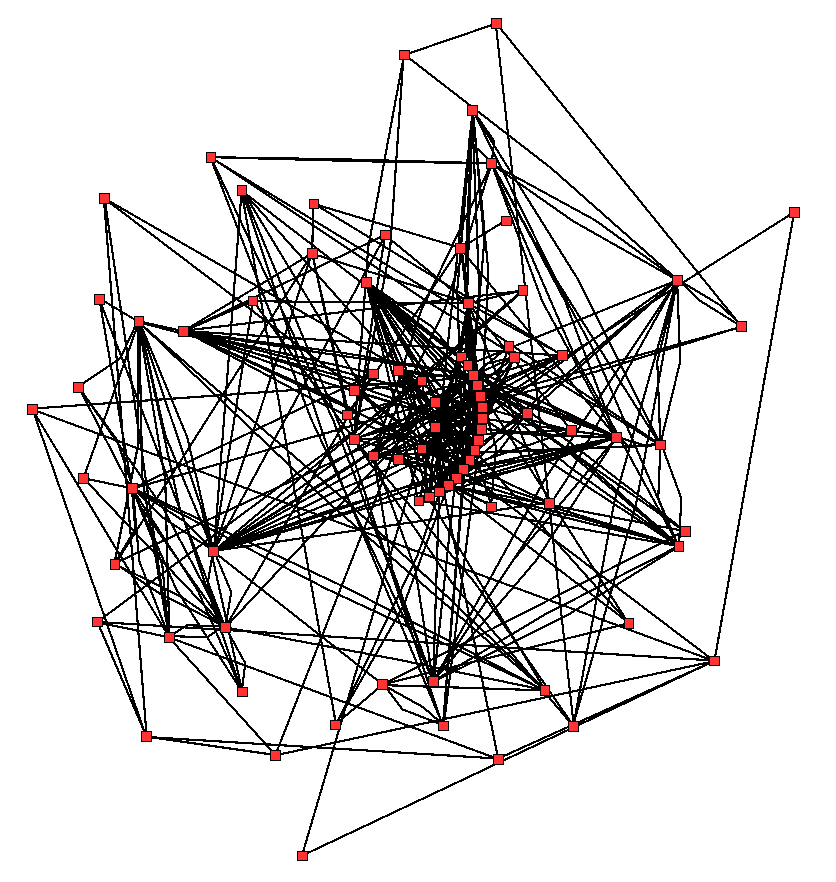Metabolism is the set of chemical reactions in cells that allow organisms to grow, reproduce, walk, talk, breath, think, etc. You get the idea. What I am mostly interested in, considering that I am posting this for the Complex Network class, is the growing interest on modeling metabolic pathway networks. There are similarities between the metabolic pathways of most species, even between unicellular bacteria and human beings.David A. Fell and Andreas Wagner analyzed the structure of a unicellular bacteria's, Escherichia coli, core metabolism to identify metabolites that are central to metabolism.
Why should we learn about metabolic pathway networks? One of the reasons, is that we can then begin to compare the evolutionary history and molecular mechanism of living organism by looking at metabolic and genomic information. It is always puzzling to think about evolution and how living organisms come to existence. I am mostly confused when it comes to evolutionist and creationist theories. On one hand, I feel religiously responsible to believe in what the bible dictates. At least that is how I was raised. On the other hand, I need to know about evolutionary theories, not just because I need to pass my Biology class but also because I know that there has been research and evidence to support these theories.
I find the evolutionary theory hard to believe because of its nature of changing and reforming. There are discoveries every year, or even every day, that prove or disprove previous theories and research. But the creationist theory never changes. It is as simple as God created the earth and its inhabitants. I know if any of the evolutionists at COA read what I have written, they will think that I am going crazy. They are probably right.
There is an incredible amount of research showing links between each and every creation on earth that force me to give some credit to scientists such as Darwin. It is because of such discoveries that we become increasingly closer to knowing living creatures' behavior, structure, composition and other complex features. We also need to know how to model metabolic pathway networks to better understand these features. Surely human beings are some of the smartest, perhaps even the smartest creatures!
Usually, only a single metabolic pathway is studied applying radioactive tracers to an organism. Then the information is used to und
 erstand and label the pathways. Such an example could be the metabolic pathway of cellular respiration. But this method does not help when it comes to a more complex metabolic pathway such as the metabolism of the whole cell. The reconstruction technique has allowed researchers to construct models of more complex metabolisms. The diagram on the left shows the interaction between 43 proteins and 40 metabolites in Arabidopsis thaliana citric acid cycle. Red nodes are metabolites and enzymes and the black links are the interactions.
erstand and label the pathways. Such an example could be the metabolic pathway of cellular respiration. But this method does not help when it comes to a more complex metabolic pathway such as the metabolism of the whole cell. The reconstruction technique has allowed researchers to construct models of more complex metabolisms. The diagram on the left shows the interaction between 43 proteins and 40 metabolites in Arabidopsis thaliana citric acid cycle. Red nodes are metabolites and enzymes and the black links are the interactions.In conclusion, in addition to helping us understand metabolic pathways and how cells function, these types of models can be used to classify human diseases into groups that share common proteins or metabolites, which in turn leads to drug discoveries and biochemical research.



2 comments:
It's always at least an..interesting debate between religion and evolution. After a quick search on the internet looking for what people are saying these days (which revealed not much in the way of an emerging compromise), I stumbled on an interview with Karl Giberson, who recently published a book called "Saving Darwin: How to be a Christian and Believe in Evolution." Here is the interview. Even though I'm not sure how much I actually agree with what he has to say, it makes an interesting read.
Thanks for the comment and for posting such an interesting interview. I never thought there would be someone like Karl Giberson coming forward to explain how we can regard evolution and still believe in God. The line between creationist and evolutionary beliefs have been divided by black or white thoughts. I believe Giberson is bringing the grey area which probably already existed but we refused to see. Although I can understand the logic, most of his explanations are not supported by clear evidence or data. This makes it hard to agree with somethings that he says. Perhaps reading his book may help.
Post a Comment